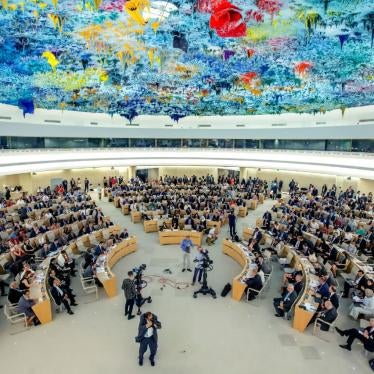The situation in South Sudan, now in its fourth year of civil war, is beyond dire. The conflict has expanded across the country, with new fighting in Greater Upper Nile, Western Bahr al Ghazal, and the Equatorias, and has included a series of highly abusive government counter-insurgency operations.
The human rights violations Human Rights Watch has documented during these operations included violations of the right to life through unlawful attacks on civilians and extrajudicial killings, arbitrary detentions and torture, sexual violence, destruction and looting of property, and forced displacement of hundreds of thousands. Government forces continue to target civilians based on their ethnicity and perceived allegiance to rebel groups and has become increasingly repressive using threats, arbitrary detentions and trumped-up charges to stifle dissent.
As a result, the civilian population in many parts of the country, especially in the Equatorias region, has fled. 2 million people are internally displaced, with more than 230,000 sheltering in six UN bases, and another 2 million have sought refuge in neighboring countries, with 1 million in Uganda alone. From February to June, famine was declared in parts of former Unity state; more than half the country’s population faces severe food shortages.
Both government and rebel forces have blocked humanitarian aid in numerous places and attacked aid workers. UN estimates 85 aid workers have been killed since the conflict began, including 18 this year alone. The international community needs to exert strong continuous pressure on both sides to end this practice.
There has been little action to stop abuses or hold those responsible to account. The ongoing government military trial of 12 soldiers for attacking an international aid compound in 2016, including for gang rape, is an important test of the government’s commitment. Likewise, news of cooperation with the African Union on establishing the hybrid court envisioned in the 2015 peace agreement, is welcome.
But these steps alone are insufficient. We urge the South Sudanese government to accelerate its cooperation with the AU on the hybrid court and to facilitate the work of the HRC’s commission on human rights, tasked to collect evidence with a view to prosecution before the court.







